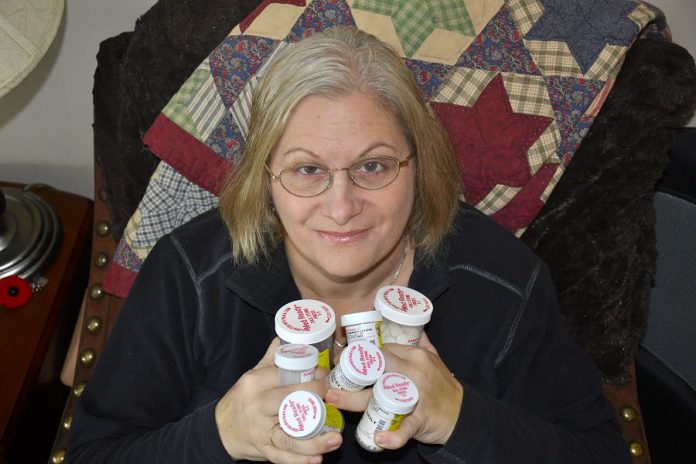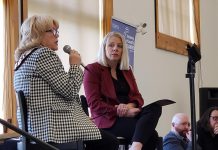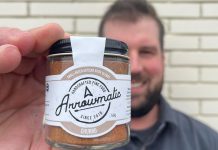
There are few things that “D” stands for that are good.
D-cup is probably too large. Ds in school are far too close to failing grades. D is also the name of a computing language that I don’t understand, a Bollywood film I didn’t like, a video-game series I don’t play, and a vitamin I don’t get enough of. D is a nickname for Detroit, which has good food but little else that’s good, and “d” connotes death in genealogy. “D”, for all intents and purposes, has little going for it.
No wonder then that, on Friday, November 14th (World Diabetes Awareness Day — two “Ds” there!), I was in denial (another “d”) when, on a fluke and almost as a joke, I checked my blood sugar — only to find it was 25.8.
For those who don’t know, a 25.8 blood glucose level is amazingly high. By Saturday night, it was 27.8 and I was hospital-bound, to start what would become my new life as a diabetic.
After 12 or more hours of an insulin drip, fluids to rehydrate me, various medications and insulin injections, and two days in hospital, I began to stabilize. I assume that’s a good thing. My sugar levels now hover around 11.8 or 12, still far higher than the usual 4 to 7 that a “normal” person registers, but far better than 27.8.
All this is a very new world, even for an educated woman who has a health-care background. It’s a world of numbers, of needles, of reading and research, of diets, and measurements, and fear, and worry.
You know how you think it can’t happen to you? Well, it can. Stats are showing us that by 2018, 3.7 million Canadians may be diagnosed with type 2 diabetes. That’s an alarming number, not just because it costs our health care system huge bundles of cash, but because each individual managing the diabetes challenge will suffer, and worry and live in fear, and many will not manage the challenge at all.
Here’s why: individuals with diabetes are at least three times more likely to be hospitalized with cardiovascular disease than individuals without diabetes, 12 times more likely to be hospitalized with end-stage renal disease, and almost 20 times more likely to be hospitalized with non-traumatic lower limb amputations. Not a pretty picture. I, for one, have only just begun to imagine myself without a foot, or on dialysis for kidney failure.
I never imagined it would happen to me, but now, thinking back, I should have given my head a shake. I maintained a busy schedule that prevented proper diet and exercise. I had headaches that wouldn’t stop, and I assumed they were from a shoulder problem, or a stressful job, or too much on my plate, or attending to family issues, or not sleeping enough, or sleeping too much. Turns out the shoulder is just fine. The headaches were from high blood sugar.
Take the Test and Reduce Your Risk
You see, that’s what we do, as humans: we live our lives, feeling invincible. We may theorize that we are not invincible, but we live as if we are. Then “D” happens. Or “C”. Or something else that shocks the system — often far too late.
For me, we don’t know yet if it is too late. We don’t know if I’ve done damage to my kidneys or liver. We know that a few other health concerns were uncovered during the course of my hospital stay; those still have to be sorted out. Right now, though, the deal is all about diabetes.
I have Excel charts to list my food and glucose levels, and I have three computers on my coffee table to assist in my research on this deadly disease. I have a new gadget (always love new gadgets): a glucometer, to measure my blood sugar every few hours. And I have six (yes, six) bottles of new pills to figure out.
And I will figure this out. Even if some damage is already done, I will figure this out. Diet and exercise are the keys. I have a friend who was able to stop insulin injections by exercising like a maniac for a year. I could do that. I have other friends who still struggle with their daily monitoring. One thing is certain: you know all those medical ads on American television? I never paid attention until now.
There’s nothing I can say to help you, as a reader, be more mindful of the way you live. Until November 14th, I was like you — going about my life, proud to meet challenges and make differences, happy to have found a groove in life, and looking forward to many more years in it. I knew anything could happen at any time, in theory, at least. Then it did.
Diabetes isn’t a death sentence, but it does pave the path. For those trying to manage it right now, reach out. There are supports both at Peterborough Regional Health Centre and in the community. There are good people in Peterborough who will share their experiences, and offer advice if you wish. If you’re older, or housebound, there are services for you, too.
I plan to dig into this issue deeply, and possibly share insights here, but even if you are just able to find a few food choices that satisfy you, you will be on the road to helping yourself live with diabetes. And you’ll have a new understanding that will shape all your relationships: that we are not invincible.
And that may be the greatest gift that “D” will ever bring.


























